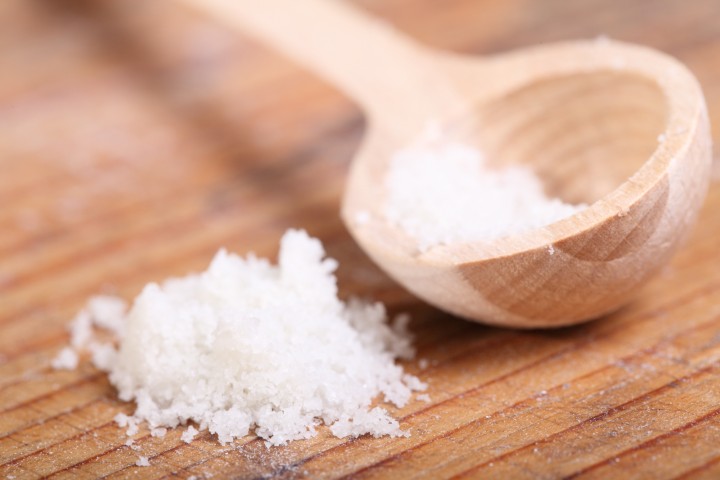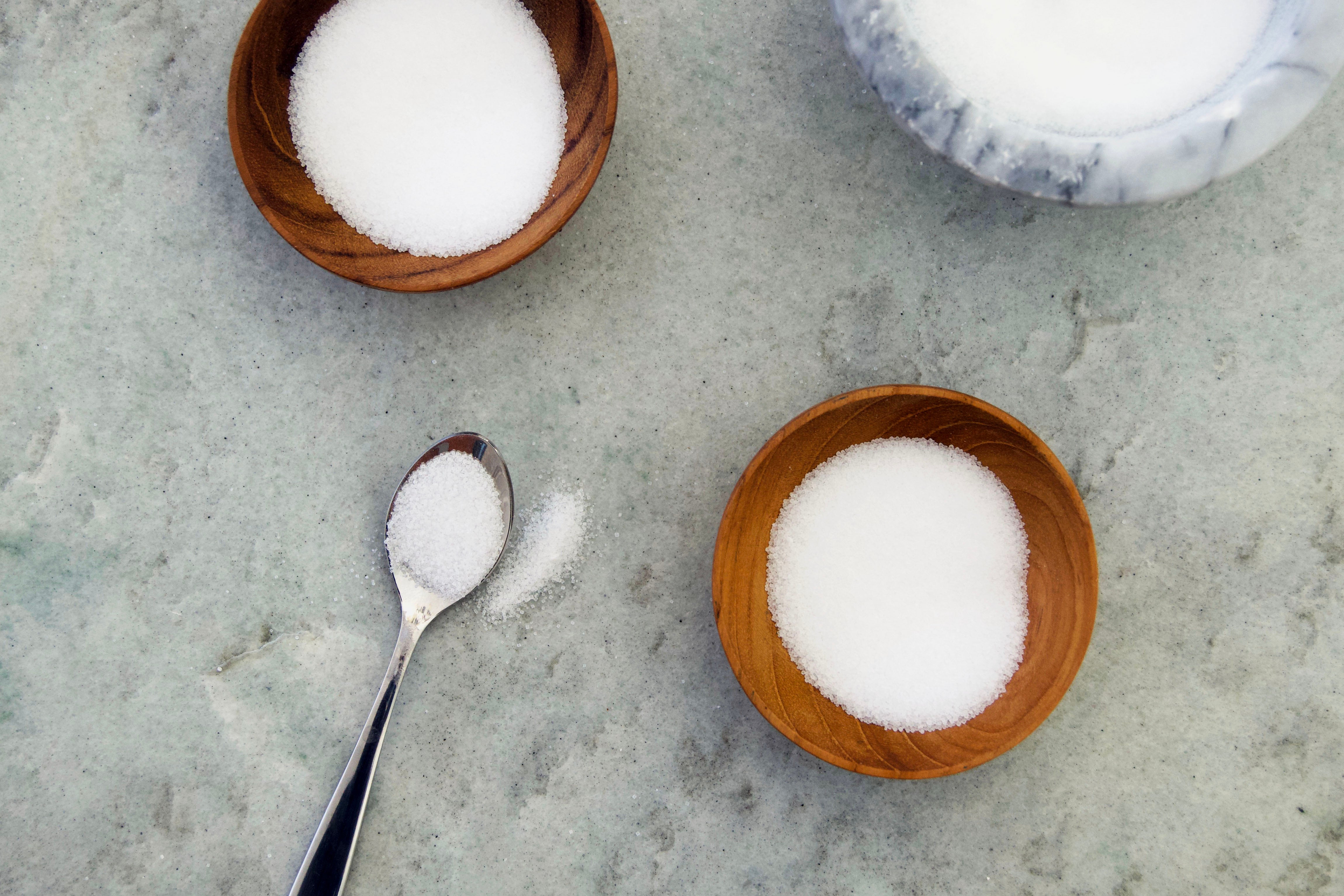
What I look for in salt is for it to be none-iodized. Salt is not only a flavor enhancer.

Without salt in the dough batch the resulting bread would be flat and insipid.
Salt in bread making. Salt has a very important role in bread production. In general it has a positive influence in the entire process. During mixing it reinforces the plastic properties of the dough and improves both its cohesiveness and elasticity.
Salt facilitates the development of crust color which tends to improve taste. Salts primary purpose in bread is to evoke and enhance the breads flavor. To most Americans saltless bread is insipid and virtually inedible but adding only approximately 2 of the flour weight in salt to the average bread formula manifestly changes the perception of breads flavor eliciting the full spectrum of complex flavor notes including a sweetness that would be otherwise absent.
It is interesting that the addition of salt to bread. The recommended amount of salt for bread is around 18 to 2 per total flour weight. Some bakers will go as high as 22 salt per flour weight.
You can use less salt. Some breads notably Tuscan bread uses no salt at all however its insipid taste is. What does salt do in bread.
1 Salt controls yeast fermentation Salt acts as a yeast inhibitor which means that it slows down the growth and. 2 Salt strengthens gluten When added to bread dough salt works to tighten the gluten strands that are formed which. 3 Salt improves crust color Bread.
Salt is one ingredient that makes bread taste so good. Without salt in the dough batch the resulting bread would be flat and insipid. The extra palatability brought about by the presence of salt is only partly due to the actual taste of the salt itself.
Salt has the peculiar ability to intensify the flavour created in bread as a result of yeast action on the other ingredients in the loaf. When baking bread salt plays a critical role in the outcome of the final product. You might know salt by its chemical compound name Sodium Chloride.
Kosher salt is the best salt for bread baking because of how salty it is and how clean it is of impurities. You could use many other salts as well. What I look for in salt is for it to be none-iodized.
Salt is not only a flavor enhancer. Salt also affects the tenderness of a baked good. Salt molecules form strong bonds with flour proteins causing the gluten molecules to become less mobile which in turn makes the dough or batter tighter and more elastic.
This is a desirable trait in a bread dough but is not desirable in a cake batter. Take a yeast cube and divide it into two halves. Place the halves into separate containers and add 1 Tbsp of salt in one of the containers.
Keenly observe how the salt particles mix and react progressively with the yeast until it forms a watery substance. Take the final product of the reaction and test it. Is salt necessary in bread making.
The short answer is that yes your bread does need salt. It is possible to make a loaf of bread without it but your bread is going to look and taste better with some salt added. Salt plays two important functions in bread.
Salt slows the rising process or fermentation of a yeast bread dough. Salt will actually dry up the yeast cells much like the sun will dry up a grape and turn it into a raisin. When you are adding your salt to your bowl its best not to add it directly on top of the yeast you just added.
Since salt slows down the fermentation it can be can be used to control the fermentation rate of sponges or sourdough breads. Salt accentuates the flavor of bakes goods. It particularly enhances the flavors of butter and flour and salt works wonders in a recipe with chocolate.
In bread baking salt helps the gluten hold more water and carbon dioxide. Did you know that it also creates a stronger and tighter crumb. If you make a bread without salt you will have to make the dough dryer as well.
Salt for lack of a better word competes with gluten and yeast for moisture. Without the salt the yeast will work a bit faster this effect isnt that pronounced and the gluten will be very soft. Generally the correct amount of salt in bread dough is 18 to 2 of salt based on flour weight that is 182 pounds of salt per 100 pounds of flour.
The lack of ability to coax fermentation flavor from bread sometimes causes the baker to use an excess of salt. However salt is a critical ingredient in bread making and its reduction can have a negative impact on bread quality. This review focuses on physiological role of sodium chloride.
Salt rising bread SRB is an Appalachian traditional bread made without yeast using a starter derived from flour milk and potatoes. The rising agent has been identified as Clostridium perfringens not salt and is presumably derived from the environment. Find out what salt does for your bread and make an informed decision about how much if any to use.
Why Real Bakers Use Salt I havent tried very hard to find a bread recipe without salt but I can safely say that conventional bread recipes all include salt and sometimes lots of it. Salt affects bread dough profoundly – even more than its effect on yeast fermentation. Salt can induce changes in protein conformation by shielding charges on the protein.
In solution salt dissolves to positive and negative ions. These sites are attracted to sites of opposite charges on the protein.